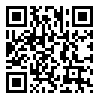BibTeX | RIS | EndNote | Medlars | ProCite | Reference Manager | RefWorks
Send citation to:
URL: http://eprj.ir/article-1-1361-en.html
2- Faculty of Economics and Social Sciences, Bu-Ali Sina University
3- Faculty of Economics and Social Sciences, Bu-Ali Sina University,
Following the influential Nordhaus (1975) article, investigation of the influence of political variables on the macroeconomic ones became an interesting subject matter for economic analyses. In this regard, the impact of elections on economic variables, which in the economic literature has been interpreted as “election cycles”, is one of the most prominent political phenomena. Policymakers, aiming for being re-elected in the following election, try to behave in particular ways that are favorable to voters. The present study attempts to investigate the impact of “electoral cycles” on the inflation rate in the selected countries. In view of that, this study examines the impact of election cycle’s sub-component (election year index, government ideology, minority government, and coalition) on the inflation rate in the developed and developing countries for the period 1994- 2012. The results of the dynamic panel method estimation show that during the election year, policymakers, irrespective of the degree of development of the target countries or policymakers’ ideology, try to reduce the inflation rate.
Received: Jun 25 2016 | Accepted: Nov 08 2017 | ePublished: Jan 09 2019
| Rights and permissions | |
.jpg) |
This work is licensed under a Creative Commons Attribution 4.0 International License. |







